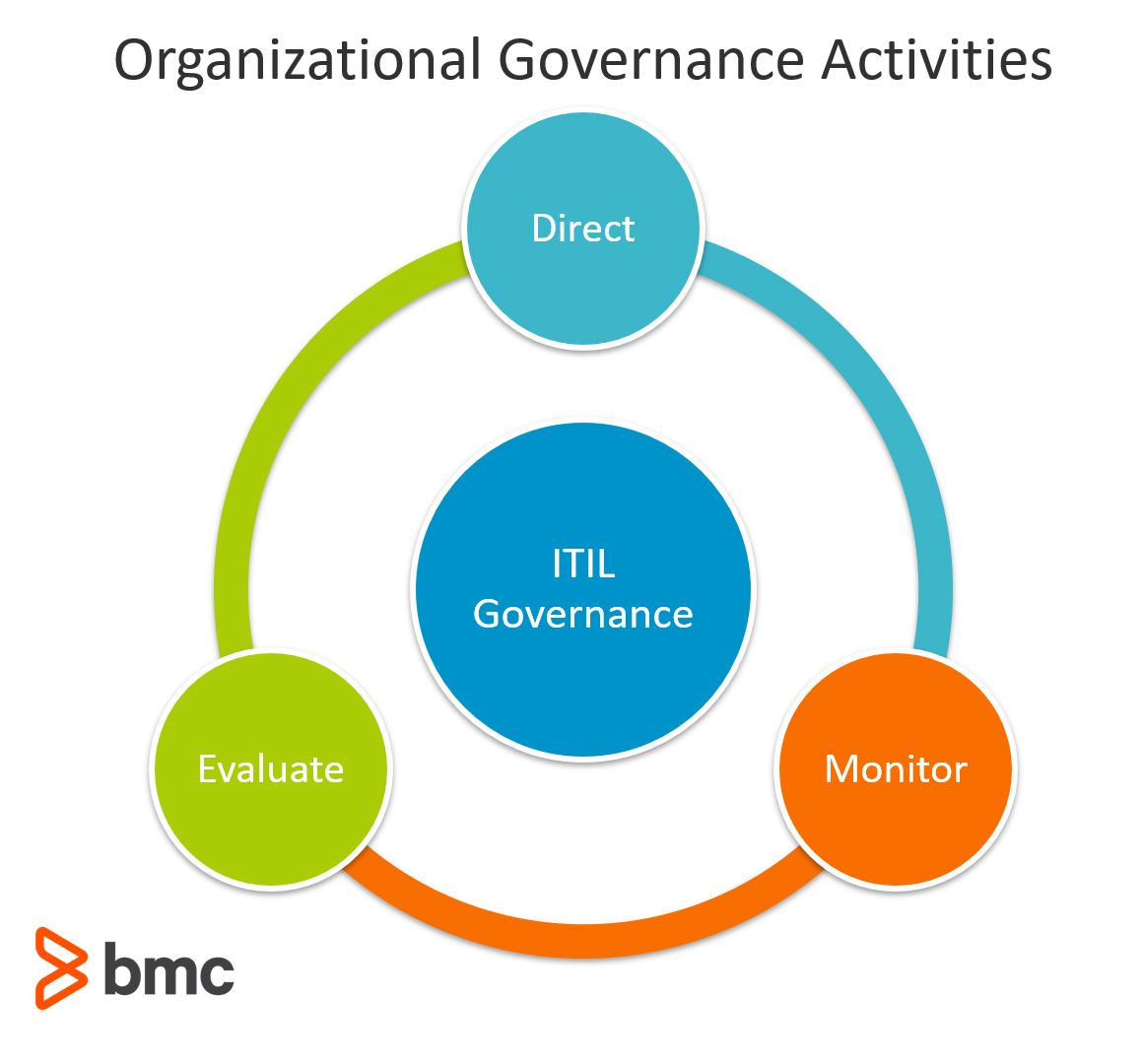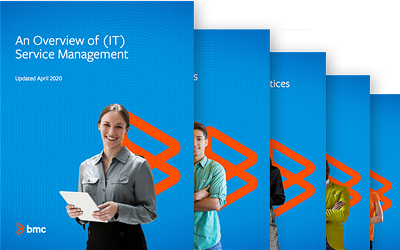Governance refers to the means by which an organization is directed and controlled. In service management, governance defines the common directions, policies, and rules that the organization uses to deliver and maintain its services.
Every organization, regardless of the size, takes direction from a governance body: a person or group of people who are accountable at the highest level for the performance and compliance of the organization. The governing body is accountable for the organization’s compliance with policies and any external regulations, and can be comprised of:
- A board of directors
- A regulatory body
- An executive management team
Download Now: ITIL 4 Best Practice e-Books
These all-new for 2020 ITIL e-books highlight important elements of ITIL 4 best practices. Quickly understand key changes and actionable concepts, written by ITIL 4 contributors.
Governance activities
There are three main activities by which governance is realized:
- Direct
- Monitor
- Evaluate

Direct
This involves the assignment of responsibility for organizational strategy and policies, and the direction of their preparation and implementation. Strategy sets the direction and prioritization for organizational activity including vision, mission and plans, while policies establish the requirements for behavior by those participating in organizational activities, whether they are staff, vendors or contractors.
Monitor
This involves determining whether the performance of the organization and its practices, products, and services is in line with the strategy and policies set in the direct activity.
Evaluate
This involves the performance of regular reviews of the organization, its strategy, portfolios, and relationships with other parties, accounting for changing external circumstances and stakeholder requirements.
Governance in the SVS
The service value system (SVS) is a universal model that can be applied across an entire organization, or to one or more of its units or products. So, if you’re delegating governance authority across different levels, then the governance body should retain oversight to ensure alignment with the objectives and priorities of the organization.
In ITIL 4, the ITIL guiding principles and continual improvement apply to all components of the SVS, including governance. Therefore, the governance body can adopt and adapt the guiding principles and communicate them across the organization as part of the “direct” activity. The governance body can also “monitor” outcomes of continual improvement activities and measurement of value.
Regardless of the scope of the SVS and the positioning of the components, it is critical to make sure that:
- The service value chain and the organization’s practices work in line with the direction given by the governing body.
- The governing body of the organization, either directly or through delegation of authority, maintains oversight of the SVS.
- Both the governing body and management at all levels maintain alignment through a clear set of shared principles and objectives.
- The governance and management at all levels are continually improved to meet the evolving expectations of the stakeholders.








